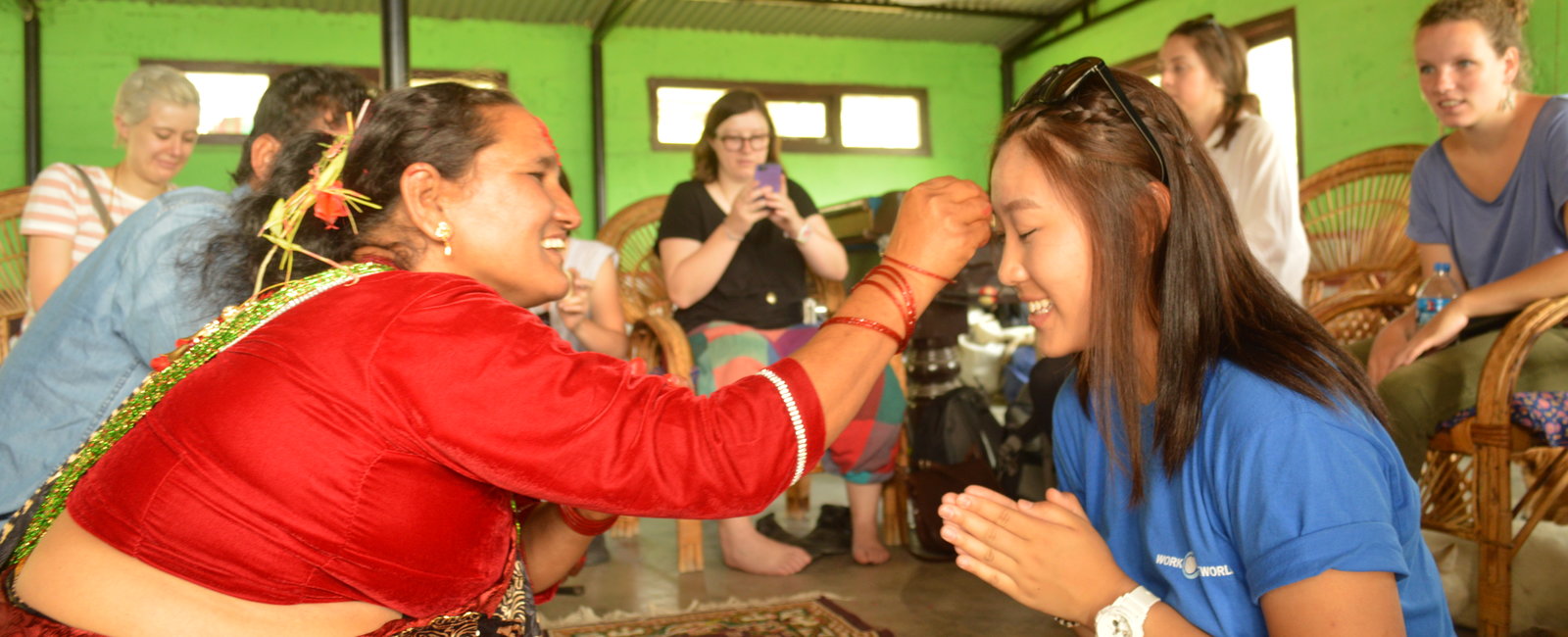One of the best experiences that I have had in my training as a Nursing student in the United Kingdom was my opportunity to serve an elective placement, spending 5-6 weeks working in any area of personal interest, resulting in personal and professional self-development while providing direction on my future career.
I decided to serve this placement in Nepal, working in the Emergency Department, Surgery Department and in a health post at Nalma Village in Lamjung through Work the World.
One clear benefit of an overseas exposure in a developing country is that it highlights foreign health issues which might not be prevalent in the students’ home country.
Overseas exposure highlights foreign health issues
This issue has been highlighted by the British Nursing and Midwifery Council, as nurses risk being too narrow in their understanding of global health issues if they remain focused on working in traditional English-speaking destinations such as Canada and Australia. Exposure to the developing world also allows students to understand how the local health professionals work towards tackling issues such as poverty and poor sanitation.
This opportunity was offered during my overseas placement through work in the village health post, delivering care to individuals regarded as ‘undesirables’ in the caste system and left to live in poor sanitary conditions. While it is arguable that similar projects are available for the destitute and homeless in the United Kingdom, the experience I gained allowed an alternative insight as to how such issues are tackled, with a greater emphasis on non-governmental organisations to provide social support services such as skills training and rehabilitation, so the government can focus its limited budget on healthcare delivery.
Exposure allows understanding of the concept of health and healthcare in a foreign environment
Patients and health professionals around the world have differing views on ‘good health’, which could direct their choice of lifestyle. This is reflected in the increased calls for health professionals to gain cultural competence, defined by Campinha-Bacote as the ability for the healthcare provider to work effectively within the patient’s cultural context. The concept of cultural competence is especially important in the West, with its increasingly multi-cultural communities and hence patient groups who want their care to be based primarily around a physical model of health, simply wanting to ‘get better’ without any form of psychosocial intervention.
While cultural competence can be gained through interactions with different patient groups during one’s placement/employment in the hospitals, working overseas offers the opportunity to understand the context for the concept of health and healthcare as adopted by the locals. For example, many Nepalese individuals had extensive cirrhosis and respiratory disease due to heavy alcohol and tobacco consumption, preferring to continue smoking and drinking despite an increased drive in health promotion by the government, highlighting the dangers of alcohol and tobacco. After repeated dialogue with the patients and other health professionals, we found that many preferred to continue with this lifestyle as they argued that it was their only source of pleasure available, an attitude which we accepted with greater understanding after we visited such individuals in their homes and realised that the drinking and smoking were their only form of escapism from their deprived environment.
Hence, an overseas exposure would allow students to have a greater sense of contextual understanding for the different interpretations of health by foreigners living and seeking medical attention in the West, improving their ability to work and deliver care effectively with an increased level of cultural competence.
Allows adaptation of skills in a foreign environment
Another benefit of gaining experience in a foreign healthcare environment is the ability to adapt the skills learnt by students in their home countries, such as wound dressing and scrub skills, into the foreign environment, particularly as many of these environments, particularly in the developing world, have a lower budget for healthcare than in the West.
With the lower budgets, staff have to improvise, and are willing to teach students how to deliver the best standard of care with the limited resources available.
An example was being shown on how to use gauze as the primary dressing for all wounds, estimating exactly how much will be needed before cutting it to minimise wastage and how to use it to effectively secure skin grafts in lieu of specialised dressings such as Jelonet. While I will have access to a greater variety of dressing options in the UK, I have a greater level of confidence in my ability to improvise and adapt my options for wound dressings in emergency situations.
Conclusion
It cannot be ignored that it is considerably more expensive to serve an elective placement overseas. However, the benefits in terms of the experience and knowledge gained, which will greatly assist students’ future practice, particularly in the ability to adapt readily to any situation, make it worth it. In addition, funding is available for students by healthcare professional bodies which recognise the benefits of an overseas placement, such as the Pelican award for nursing students in Scotland. I would sincerely recommend students to consider serving their elective overseas, gaining an edge in the ability to adapt and grasp the context of foreign health issues.
Written by George Glass, nursing student at the University of Edinburgh




